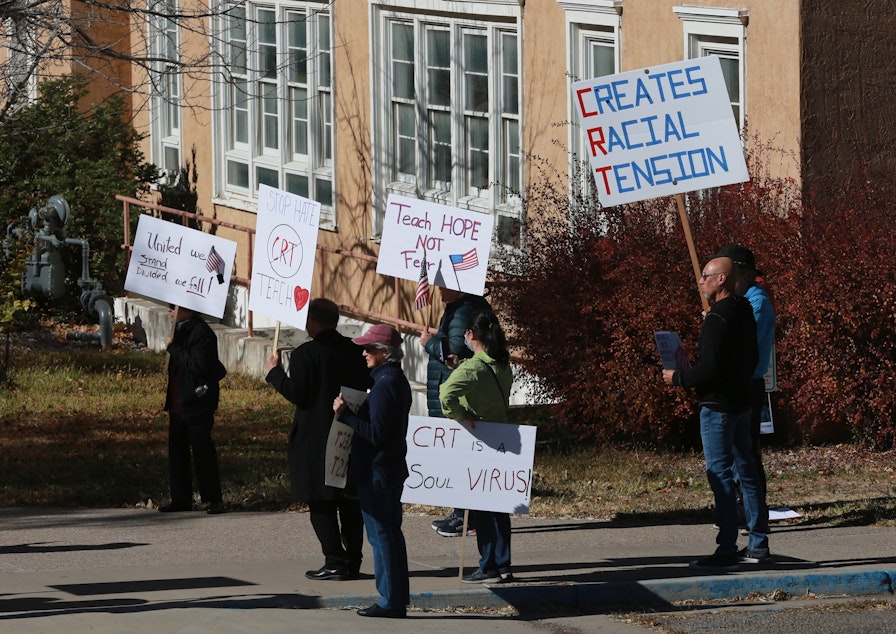'Critical race theory' and gender studies take center stage in Spokane

School board elections in Washington are mostly non-partisan, but that hasn’t stopped the polarization that’s infected much of our political system from showing up at their meetings.
Soundside headed to Spokane for a recent example, to Northwood Middle School, and a recent board meeting of the Mead School District.
School boards set policy for their districts and adopt instructional material like textbooks. That’s making them another battleground for the culture wars playing out in Facebook groups, on cable news, and around dinner tables across the U.S.
At issue in Spokane were a pair of proposals from Mead School Board President Michael Cannon. The first policy would have banned so-called “critical race theory” instruction from the school district, while the second would police gender studies materials in elementary libraries.
Nate Sanford , a reporter for The Inlander in Spokane, provided his perspective from the board meetings at the Mead School District.
Of more than 100 community members who signed up to speak at the Sept. 12 meeting, nearly 60 were able to actually give their statements during the two-hour public comment period. Those who spoke up ran the gamut from parents to students, along with a number of teachers and faculty members from district schools.
Another target for critics has been the expansion of diversity and inclusion training for teachers and school officials. Last year, Gov. Jay Inslee signed a number of bills addressing racial equity at state-funded schools. The highest profile bill, SB 5044, which aims to teach school officials about equity with the aim of "dismantling institutional racism in the public school system," took effect earlier this year.
Sponsored
Tricia Lubach of the Washington state School Directors’ Association explained that school boards have two main goals. The first is to update Washington School Board standards with an eye towards ensuring that those standards include the ways that school directors do their work in a way that's thoughtful about cultural competency, diversity, equity and inclusion.
The second goal is to develop and to deliver training to school directors around the state in regard to educational equity.
Lubach says they approach their job without a political lens.
"I think we're in a polarized time, right now in a number of different areas, certainly within education policy," she explained. "Our focus is really on providing them with the training that they need, that helps them best serve every student in their district."





